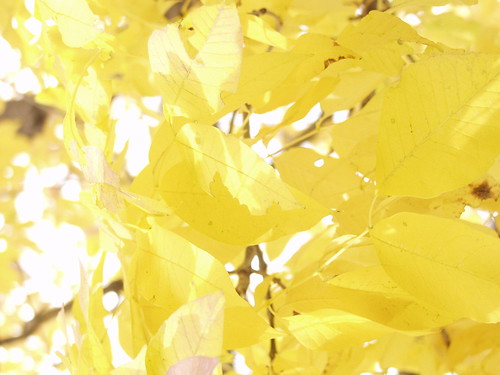Finding old photos deemed long-lost is both dizzyingly joyful and weirdly alarming. I found myself experiencing this tailspin recently as I inadvertently came upon photos from more than a decade ago; visions of past lives, selves, dreams, ambitions and moments came flooding back. It made me feel old and young, all at once.
I have little use for nostalgia; I’m not the sort of person to long for a time to return, or to wallow in the tail-chasing uselessness of regret. But I wonder about the effect the internet has on our collective memories. People are quick to throw up albums of their latest outing/party/dinner/etc, without considering that they just might be giving a part of themselves away forever. And while they’re busy photoshopping and uploading and updating and IMing their adventures, there’s a whole world around them that keeps going. I don’t want to live my life online; I want to live it … living.
After the funny, familiar, forgotten feelings passed, I wondered about scanning a few photos to share. Would I? Should I? Is it anyone’s business? How much does sharing my past propel me into the future? or trap me in the past? Does the relentless documentation of the mundane boil down to simple narcissism? the primal urge to connect? a bit of both? Have Warhol’s fifteen minutes been shrunk to mere pixels and megabytes, mp3s and mp4s? I grapple with these questions daily, judiciously weighing what to share, what not to share, how best to do it, and when to walk away entirely, and, you know, live my life somewhere other than online, or in the media at all. I can’t help but wonder how my artwork’s being influenced by all this reflection, however, or its symbiotic relationship with a larger popular culture where exposure and revelation seem to overshadow not just nuance, but the blood-and-guts beauty of day-to-day living.
As such, I’ve being paying a heap of attention to the news around Patti Smith’s memoir of life with Robert Mapplethorpe. ‘Just Kids’ won the U.S. National Book Award for non-fiction in November. Patti was recently interviewed by Stephen Colbert, who, responding to his humorous query about her punk, anti-establishment ethos, said, softly but firmly, “I like my award.” As if there was any question she might throw it back. The award is a testament to Smith’s mastery with words. The book is a hypnotizing blend of moving personal experience and a recollections on life in late 60s/early 70s as a struggling young artist. Famous figures like Janis Joplin, Jim Morrison, Sam Wagstaff, Andy Warhol, and Lou Reed (among many others) float in and out, but what kept my interest flowing was Patti’s poetic, flowing prose shot through with equal parts youthful zeal and lived-in wisdom. There’s an old-soul quality to her work that in no way lessens her roaring passion or stirring memories of her personal and artistic development on the mean streets of the Big Apple.
Owing to this unique combination of flavours, ‘Just Kids’ has become one of my very-favorite books, ever. I devoured whole chapters across many late evenings when I began reading it, connecting deeply with certain aspects: involvement with artists; finding one’s own artistic voice; sacrificing for vision; growing confidence; growing old; shifting priorities; retaining authenticity. As I noted the end drawing ever nearer, I wound up slowing my voracious, passionate pace, instincts automatically kicking in to postpone the inevitable final page. Time -with anyone, with any place, with any memory, with any project -is always finite. Patti herself acknowledges this as she writes of the last time she met, and spoke with, her longtime … what? Friend? Lover? Mentor? Soulmate? All of the above. ‘Just Kids’ describes a life well-lived indeed, but it also bravely crosses into some personal, painful hinterlands.
That Patti was so baldly, boldly able to share a very, deeply personal part of her life with the public, without being saccharine, sentimental, or sensationalist is awe-inspiring. And yet, it feels natural. Patti honored the beauty of life she’s experienced, in all its gut-wrenching, thrilling, horrifying, glorifying majesty, by writing this book. She also honored Robert’s request. Nothing about ‘Just Kids’ feels forced, cheap, or exploitive. It’s real, it’s raw, it’s deeply moving and desperately personal. I’m a deeply private person myself (despite all my online activities might imply) and I am really not sure I’d ever be able to write something akin to ‘Just Kids’, nor am I sure I’d want to. I don’t be able to make the kind of promise Patti made with Robert before he died about writing a memoir of their lives, partially because I don’t think I could ever do those kinds of relationships justice in written form, and, frankly, I’m not sure certain things are anyone’s business.
I do, however, have photos and old journals; I have memories that flicker in and out, and boxes (and boxes!) of poetry, photographs, drawings, and paintings. This – -my life – – is the foundation of my art, and the art of many, past and present, whom I admire. Translating it all into something I feel comfortable sharing, without it seeming narcissistic, saccharine, or relentlessly navel-gazing, is a challenging, if inevitable, opportunity to open a door into a new world. It’s like trying to get into the best, most dreamy spot in the world, but there’s a guard dog outside, and you only know it’s there by its breath; it might bite you, it might let you pet it, but you have to get past it, blood, treats, cooing, and all.
Ultimately, the best art requires a certain degree of nakedness. And nakedness requires bravery. Patti was brave enough to be naked -in ‘Just Kids’ unquestionably, but also through her thirty-plus years of poetry, art and music. I’m gradually learning to go naked too. Damn it’s cold. But I’m getting used to it… maybe.

